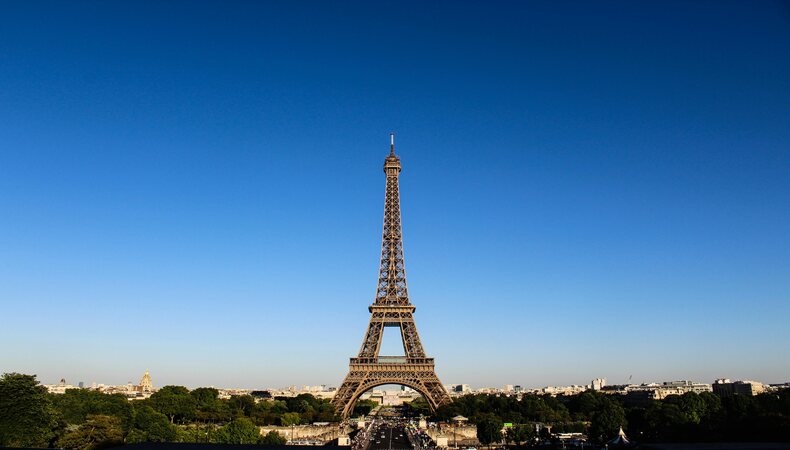France Pushes for Ceasefire in Lebanon as Violence Escalates

France has proposed a 21-day ceasefire in Lebanon among increasing hostilities between Israel and Hezbollah, therefore indicating a pressing need for diplomacy as the fatality count keeps rising. Israel’s military bombings against Hezbollah, which have caused hundreds dead and thousands displaced, have prompted a suggested truce. Shortly following a pivotal meeting between US President Joe Biden and French President Emmanuel Macron at the United Nations, France presented its proposal during an emergency Security Council session, highlighting the mutual dedication between France and the United States to help to defuse the crisis.
France’s Demand of Diplomacy
In order to open the path for negotiations, French Foreign Minister Jean-Noel Barrot proposed a “temporary ceasefire” lasting twenty-one days. Emphasizing the severity of the matter, Barrot said, “all actors must engage resolutely on a path of de-escalation.” This appeal for peace fits the mounting global worries about the escalating violence in Lebanon as Israel keeps attacking Hezbollah.
The bloodshed has caused concern all around and led UN Secretary-General Antonio Guterres to demand an instantaneous stop-off. Declaring, “Hell is breaking loose,” Guterres issued a sobering warning as the fight seemed to veer more into anarchy. As Israeli forces seek to discredit Hezbollah, a militant organization supported by Iran that has been involved in conflicts with Israel since the start of the war in Gaza, the situation has grown ever more dire.
Israel’s Reaction to Suggestion for a Ceasefire
Israel is certain in its military goals even if it has shown receptivity to diplomatic initiatives. Danny Danon, Israel’s ambassador to the UN, recognized the value of diplomacy but underlined Israel’s will to achieve her objectives. “We appreciate all those who are sincerely trying diplomatically to prevent escalation, to avoid a full war,” Danon said. Nonetheless, he said unequivocally, “We will use all means at our disposal, in accordance with international law, to achieve our aims,” underlining Israel’s desire to reduce Hezbollah’s armed capacity.
Israel’s forceful posture stems from its larger regional strategy, which also comprises continuous military actions against Hamas in Gaza. Given the still-high tensions between Israel and Iran, the battle in Lebanon signals still another front in Israel’s attempts to undermine Iranian sympathizers in the area.
Iran’s Increasing Active Participation
Key supporter of Hezbollah, Iran has not directly responded against Israel in recent weeks despite Israeli actions aimed at Iranian interests. Iranian Foreign Minister Abbas Araghchi has cautioned, nevertheless, that Tehran’s moderation might not be sustained very long. Araghchi issued a warning: the area is “on the brink of a full-scale catastrophe,” and if the fight runs unbridled, the Middle East and beyond may suffer disastrous results.
Iran’s stance adds still another level of complication to the battle since the threat of a more general regional confrontation looms. Iran’s warning of possible reprisals raises the stakes for the global community since initiatives to stop a more general conflict get more urgent.
The United States’ Part in Diplomacy
Israel has continued with its attack in Lebanon in spite of repeated requests for moderation and worries expressed by its partner, the United States. Having made several diplomatic visits to the Middle East following the October 7 Hamas strikes on Israel, Secretary of State Antony Blinken cautioned of the “acute” risk of escalation. Speaking in front of Gulf Arab colleagues in New York, Blinken underlined that “the best answer is diplomacy,” and that coordinated efforts are crucial to stop the violence from spreading further.
Avoiding a full-scale conflict between Israel and Hezbollah has been the main objective of US authorities. The United States has been quite active in attempts at a ceasefire in Gaza, but diplomats have said that these initiatives are no longer directly connected to Lebanon, therefore indicating a change in emphasis toward avoiding a regional war.
Rising Death Count and Humanitarian Issues
The human cost of the war keeps rising; the Lebanese health ministry reports that Israeli attacks on Wednesday alone claimed 72 lives. This counts on top of the hundreds already dead and the thousands of displaced people since the start of the war. Thousands of Lebanese people have left their homes in search of safety from the progressively unstable border area as violence rises, heading north.
Efforts at diplomacy are under way to lessen the humanitarian problem. Still firmly anchored in their stances, Israel and Hezbollah show little evidence of compromise. Robert Wood, US Deputy Ambassador to the United Nations, voiced worries about the increasing death toll but underlined that attempts for peace have been hindered by Lebanon’s cooperation with Hamas since the October 7 attacks on Israel. Wood demanded a “comprehensive understanding” to be attained that guarantees enduring peace along the UN-demarcated Blue Line, the border separating Israel from Lebanon.
Prospective Future for Harmony
The possibility of a long-term peace is yet unknown while Israel and Hezbollah fight on. If approved, the suggested ceasefire by France might offer a much-needed stop in the conflict, therefore enabling negotiations. But given the high levels of conflict and both parties firmly anchored in their objectives, it is doubtful that a brief stop of hostilities will be sufficient to stop more escalation.
US President Joe Biden has underlined how the area finds itself at a junction. Biden said, “An all-out war is possible,” on a national television program, but he also pointed out that there is still a chance for a deal that may “fundamentally change the whole region.” This attitude captures the delicate equilibrium between diplomacy and conflict as the world tries to stop the war from expanding.
The disagreement can be resolved only if all the players are eager to participate in meaningful communication. While France and the United States advocate diplomacy, the world watches to see if the truce will hold or if Lebanon would plunge more into bloodshed.




